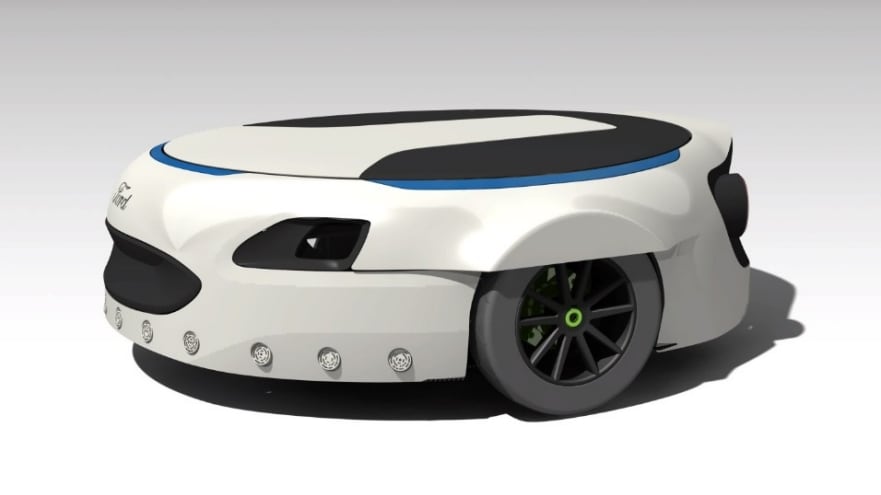Untitled Document
- Electric rideable platform Carr-E; folding electric tricycle TriCiti; and self-loading electric wheelchair eChair are among finalists in Ford employee innovation challenge
- Ford Last Mile Mobility Challenge receives proposals for over 600 electric personal assistant devices from Ford employees around the world for moving people or goods in urban areas
- The number of individual Ford employees registering inventions has reached record levels, with the number of total inventions expected to set an annual record in 2016
AACHEN, Germany, Nov. 3, 2016 – An innovative personal transportation system designed to fit neatly into boot space usually occupied by a car’s spare wheel is among the finalists in a Ford challenge to create future ‘last mile’ mobility solutions for urban areas.
The Carr-E – developed by Kilian Vas, a Ford systems engineer based in Cologne, Germany – was among 633 proposals for personal mobility solutions created by Ford employees as part of the company’s Last Mile Mobility Challenge to develop electric personal assistant devices that will help to make transportation better in areas where vehicles are not permitted or practical, and which help people to get to their final destination from their car.
The Carr-E can transport people or objects up to 120 kg, has a range of 22 kilometres (14 miles) and a top speed of 18 km/h (11 mph). The innovative transport solution is shortlisted for the innovation challenge finals alongside the TriCiti – a folding electric tricycle that can be easily adapted into a shopping cart, stack trolley or golf buggy; and the eChair concept – an electric wheelchair that can be autonomously loaded into a vehicle.
“We really need to reinvent the wheel, to find new approaches to mobility,” Vas said. “When developing the Carr-E, I was inspired by Ford’s expansion into both an auto and a mobility company, but I’m also aware of how rapidly cities are growing and how getting around urban areas will become progressively more complicated. I really wanted to create a device that makes commuting easier and more fun.”
Vas collaborated with his colleague Daniel Hari and his manager Dr. Uwe Wagner, and worked with designers from Ford of Europe and prototyping specialists from RWTH Aachen University to create the Carr-E. The four-wheeled device is designed to complement the use of a vehicle and support commuters during the final part of their journey, between parking space and destination.
The Carr-E can also be used to transport heavy objects. Users simply place the object on the device and it will follow an electronic transmitter they keep in their possession.
The TriCiti, developed by James Neugebauer, Torsten Gerhardt and Robert Spahl – all working within Vehicle Architecture, Ford of Europe – is also designed to be both a rideable device and all-purpose carrying assistant. The foldable transportation solution can be adapted to carry shopping or items such as golf bags, and can easily be taken onto public transport or stored in a vehicle. The TriCiti has a range of 30 kilometres (19 miles) and a top speed of 20 km/h (12 mph).
The eChair, developed by Gunther Cuypers, Robin Celis and David Longin – all engineers at Ford’s Lommel Proving Grounds, Belgium – is a lightweight electric wheelchair with a self-loading solution, designed to offer greater independence to people with reduced mobility.
“Innovation and disruption is as much at the heart of how our engineers think now, as it was when Henry Ford first set about transforming the way we move,” said Walter Pijls, supervisor, Innovation Management for Mobility, Ford of Europe. “Personal assistant devices can help people to cover the final kilometres of their journey quickly and easily, and to transport heavy objects they might not be able to carry.”
The increase in innovation at Ford – as measured by invention disclosures – is expected to reach a company record in 2016, topping last year’s record of more than 6,000. The number of individual Ford employees creating inventions also has reached record levels since the start of 2015, with more than 3,500 first-time inventors submitting new innovations.

